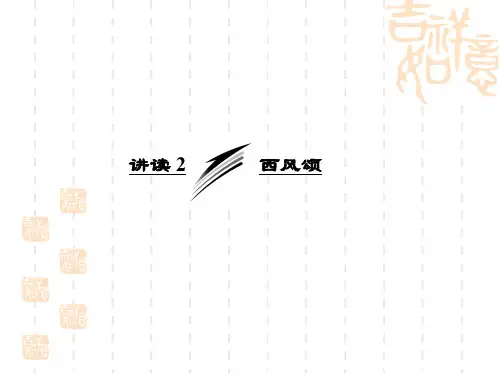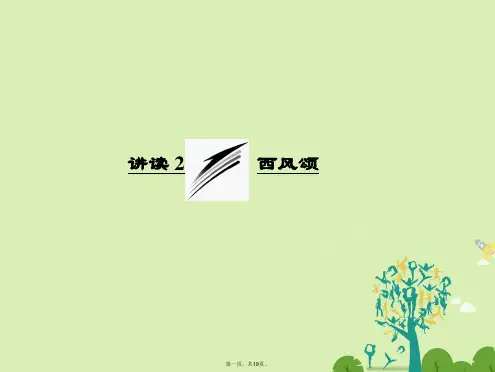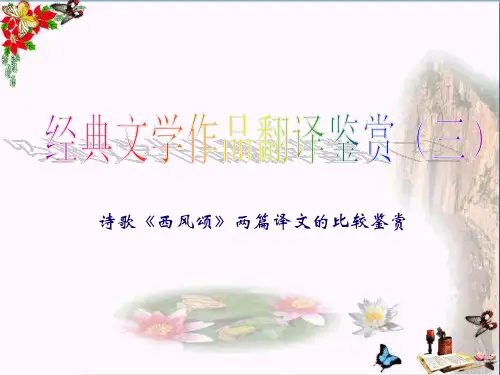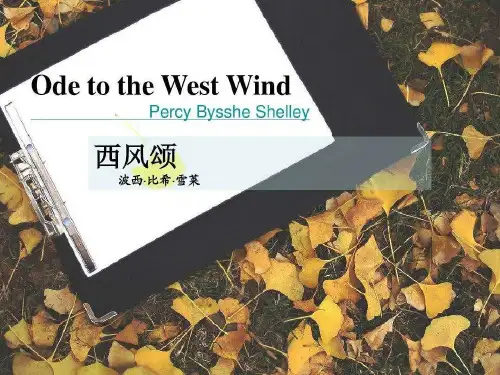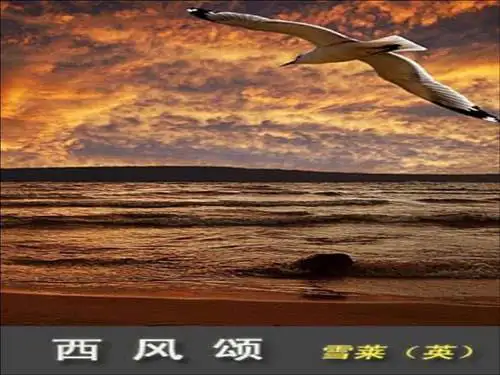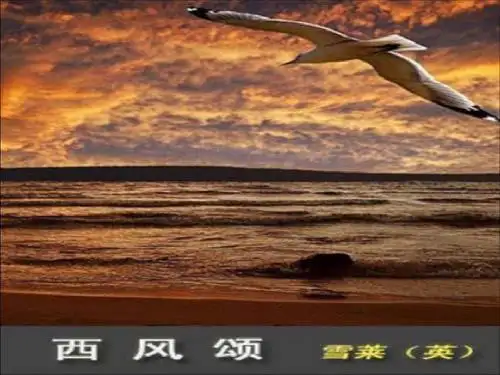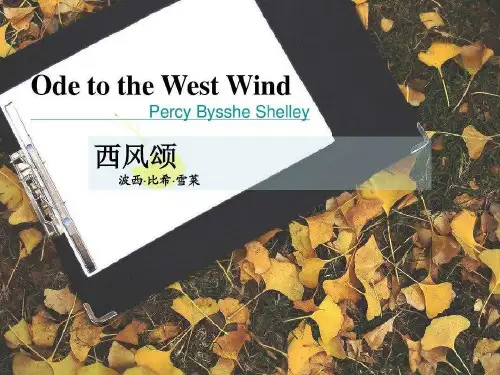• • • • • • • • • • •
The comrade of thy wanderings over Heaven, As then, when to outstrip thy skiey speed Scarce seem‘d a vision; I would ne’er have striven 陪伴着你在那天国里任意翱游, 即使比你飞得更快也并非幻想—— 那么我绝不向你这 般苦苦哀求 As thore need. Oh, lift me as a wave, a leaf, a cloud! I fall upon the thorns of life! I bleed 啊, 卷起我吧! 如同翻卷波浪、 或像横扫落叶、或像驱赶浮云! 我跃进人生的荆棘, 鲜血直淌!
•The trumpet of a prophecy! •O Wind, If Winter comes, can spring be far behind? •向昏沉的大地吹奏! •哦, 风啊, 如果冬天来了, 春天还会远吗?
Poetry of appreciation
• In Ode to the West Wind, Percy Bysshe Shelley tries to show his desire for transcendence by explaining that his thoughts and ideas, like the winged seeds are trapped. • The West Wind acts as a force for change and forward movement in the human and natural world.
• Shelley sees winter not just as the last season of vegetation but as the last phase of life. • Shelley observes the changing of the weather from autumn to winter and its effects on the environment. • Shelley is trying to show that a man’s ideas can spread and live on beyond his lifetime by having the wind carry his dead thoughts which through destruction, will lead to a rebirth in the imagination, and in the natural world.
